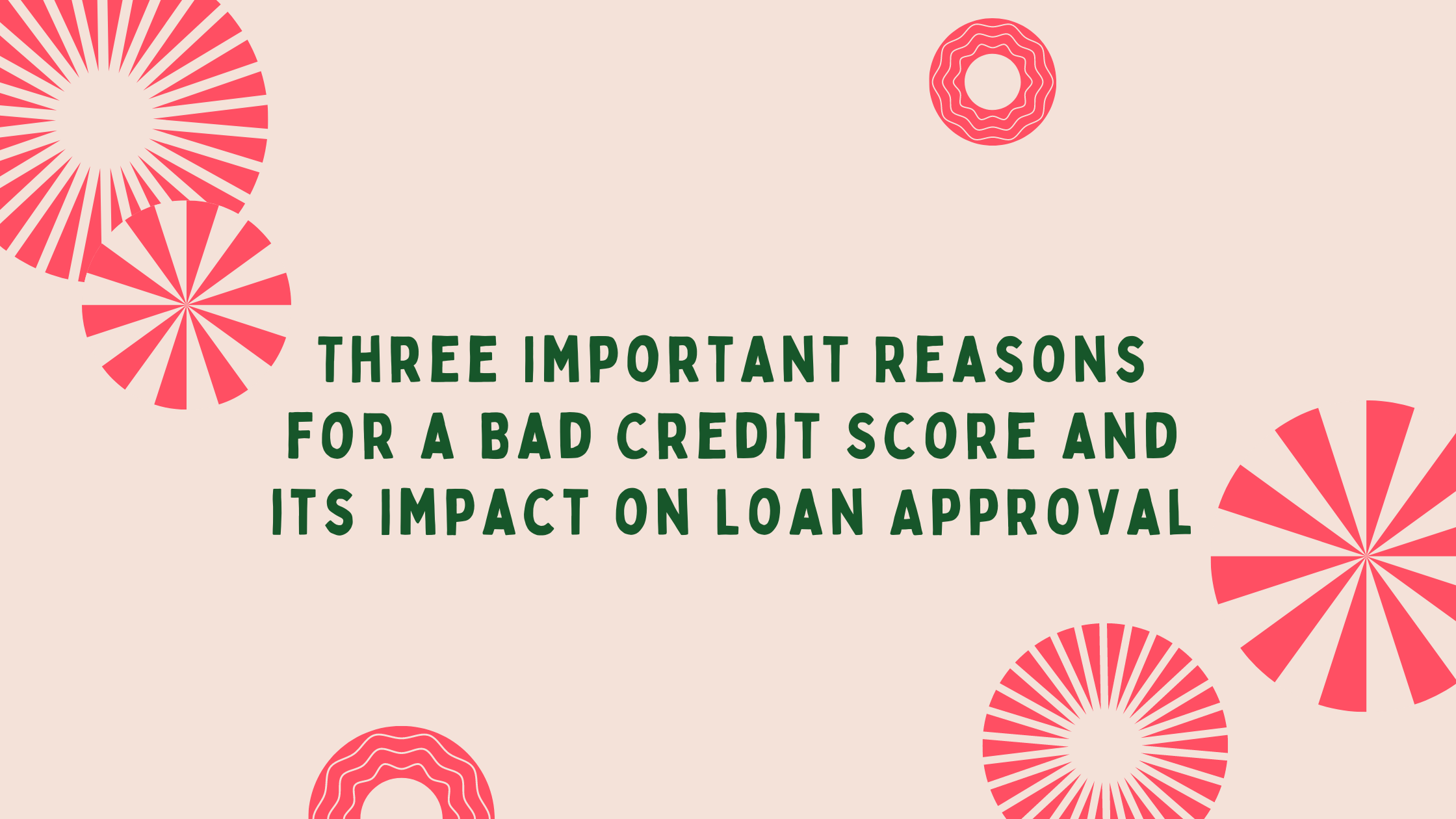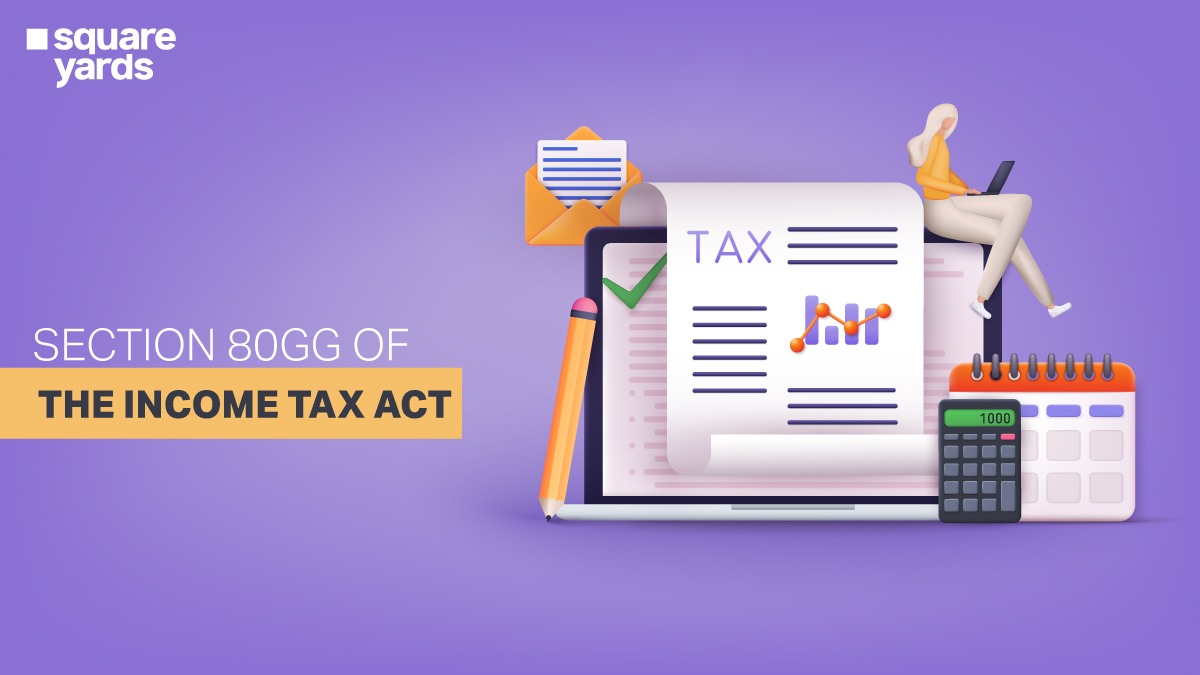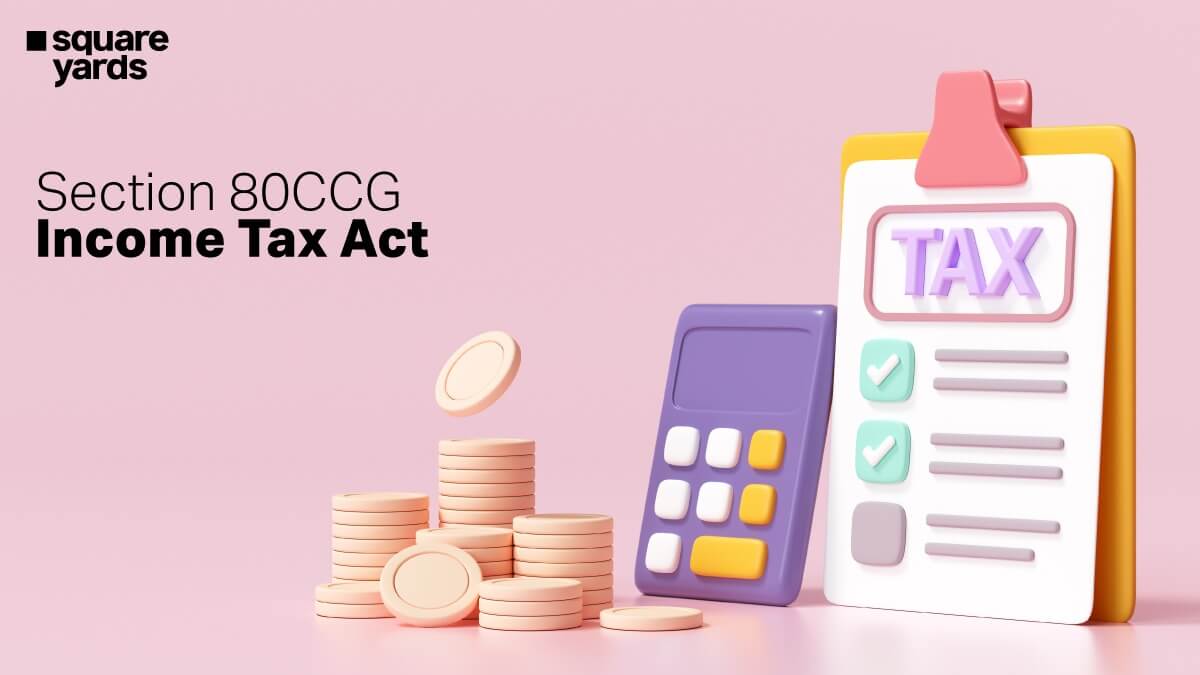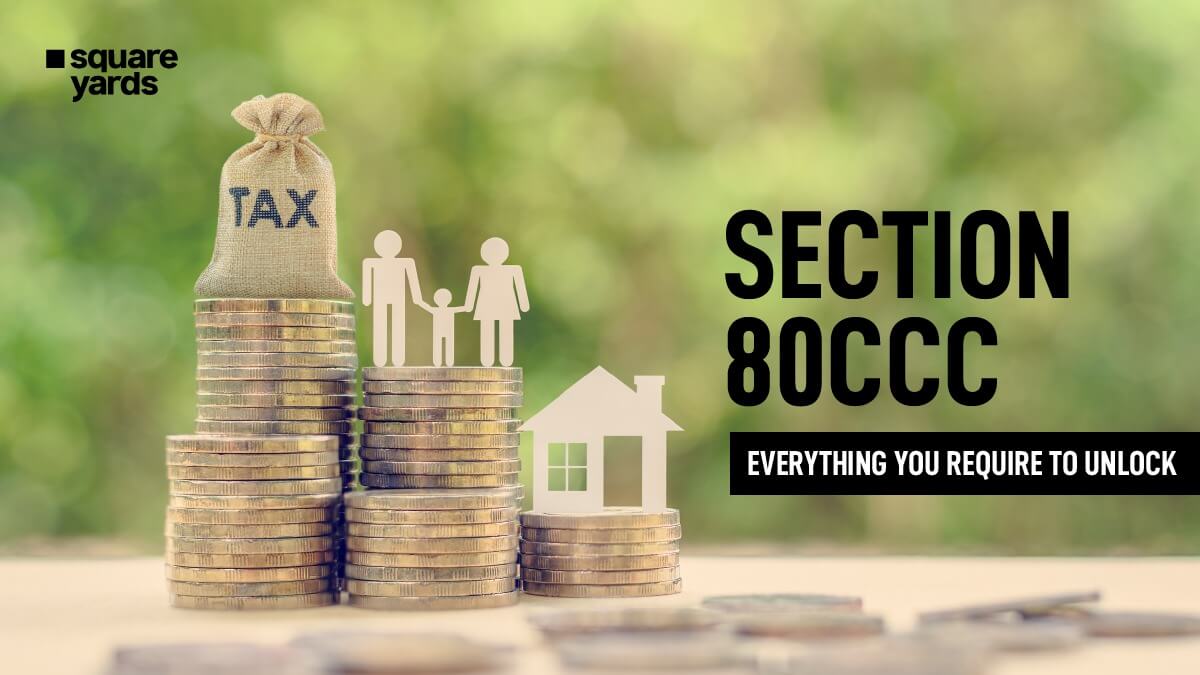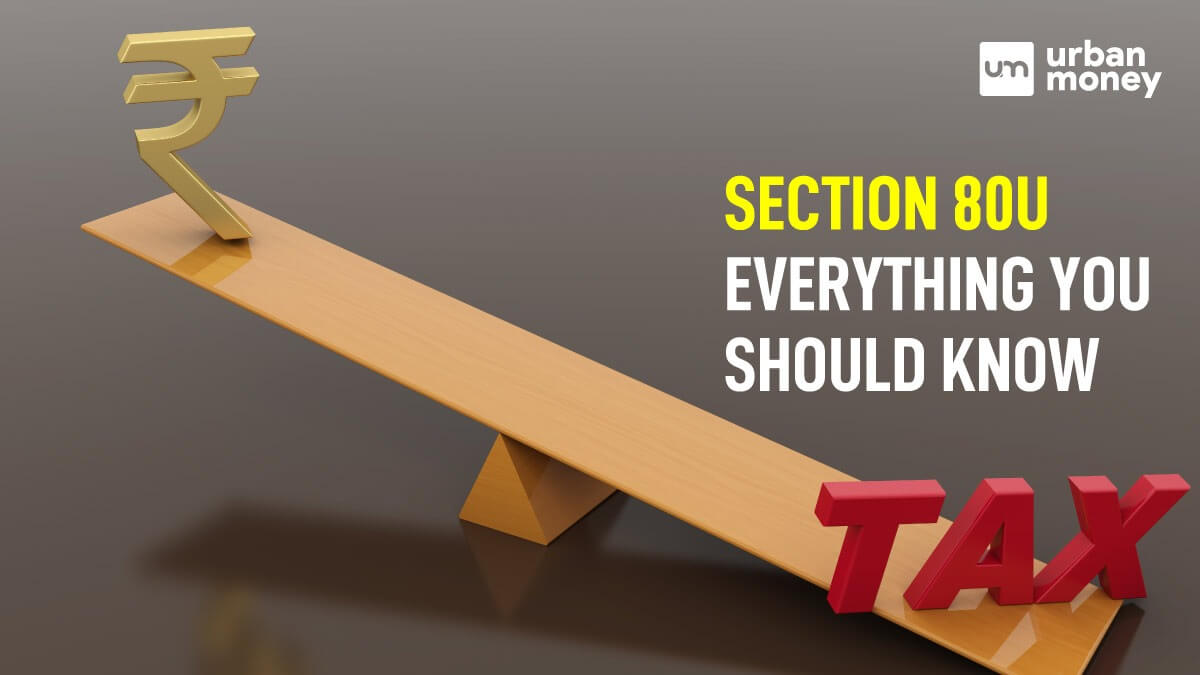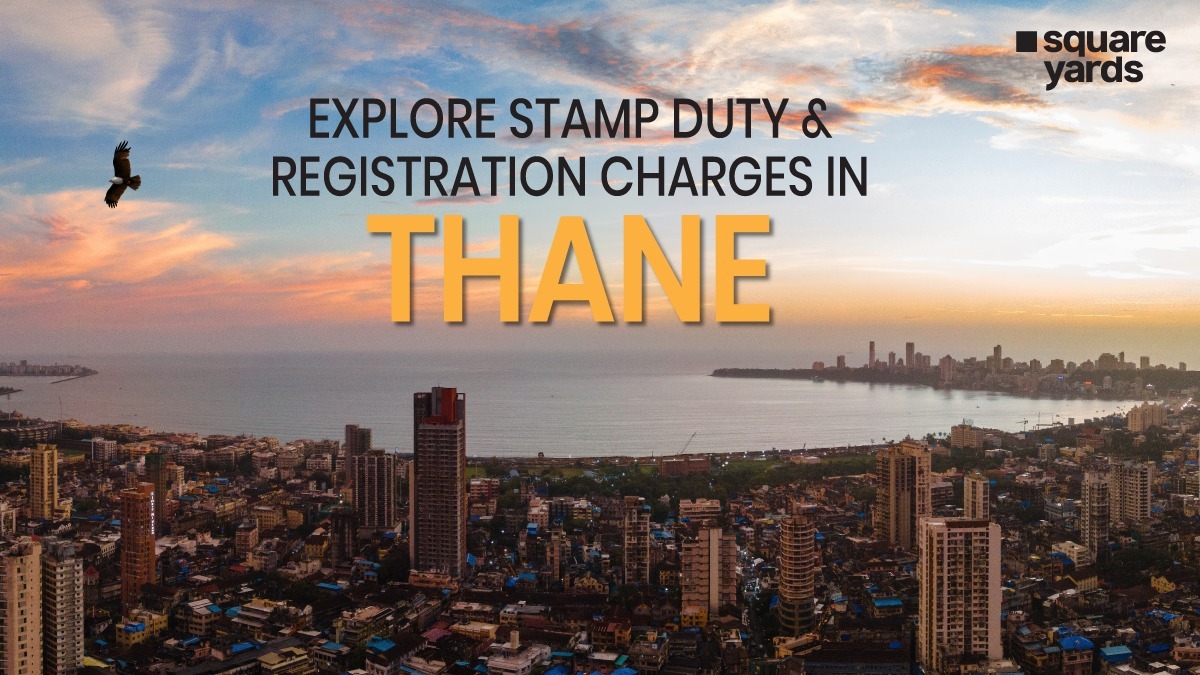Your credit score plays an important role in getting your loan application processed. Having a bad credit score leads you to a higher chance of getting it rejected. What factors contribute to a bad credit score and how it will impact your loan application is what we will see here.
The credit score is like a report of an individual applying for a loan. The lending bank looks at the credit score to identify if the person can repay the loans or not. If they see a problem in the scores, they tend to reject the loan requests. The best CIBIL score will easily get your loan approved as the lenders will be assured of your financial status and the repayment of the loan. A Loan for low CIBIL score goes through an elaborate procedure and may have a higher interest rate. You can check ‘MyCIBIL’ to know more about your CIBIL score and report.
What are the 3 Major Reasons for Loan Rejection Due to a Bad Credit Score?
1. Inconsistent or poor repayment history
If you already own credit accounts under your name like credit cards or any other loans – personal, two-wheeler, car loans, then you should make sure that you have a good history of repaying them. If the banks see a history of delay in making payments (Day Past Due DPD), they might have a second thought in approving your loan application.
How does your DPD value affect your loan approval?
- The important section in your CIBIL report is the CIBIL DPD. DPD – stands for Days past due. This section has a value denoting the number of days by which you have delayed In making your payment for the credit taken.
- The banks use these DPD values to check if you are a regular repayer or not. If the DPD values are more than 0, you have certainly missed/delayed your payments, and therefore you have a bad credit score.
- And if there is a constant trend in this section, the banks consider you a risky borrower and your loan for low CIBIL score gets rejected.
- One single missed or delayed payment will have a DPD value shown for 36 months. So, if you are seeking a loan within that period, then there are higher chances that your loan can get rejected.
- Therefore it is always advisable that you make your repayments on time to obtain a best CIBIL score. If not, request an extension period from your bank. Though some of them agree to give you an extended time for paying, they make a comment which gets updated in your credit report.
How can CIBIL Comments have an impact on your loan application?
When processing loan applications, the banks always look for the comments section on the credit report that has special mentions. These are the sections that show if there were any discrepancies during your loan tenure or closure, like whether you missed out on any important terms and conditions of the loan or requested to lower your interest rates, or requested to extend your time for paying EMI.
If banks observe any such piece of information, your chances of getting refused for the loan are on the higher side. Therefore it is best advised that before you apply for any loans, make sure you understand all the terms and conditions of the loan for a low CIBIL score. Do not request a reduction in the interest rate after your loan application was processed. This can cause a remark on your CIBIL report and can lead to future loan rejections. All these contribute to a bad credit score leading to your loan rejection.
2. Existing debts and frequent credit inquiries
Having too many debts contributes to your bad credit score. If you already have a loan in progress and you tend to apply for another one, your credit limit tends to decrease. This will naturally lead to a bad score. The offering bank might consider this credit hunger behavior as a reason for rejecting your loan. Therefore it is best advised that you close your existing debts before you apply for a Loan for low CIBIL score.
Too many debts result in an unfavourable DTI Ratio leading to loan rejection.
The banks consider you as a risky customer if you have too many credit cards or loans all at the same time. The reason is that your fixed income might not be sufficient to pay for future loans.
How too many credit inquiries contribute to a bad credit score and loan rejection?
- Another important factor for loan rejection and a bad score is credit inquiries. The CIBIL report has a section called credit inquiries. If there is a history of too many inquiries under this section, it means that you are frequently trying for loans, and the banks consider this as a risk factor and might reject your loan.
- The hard inquiries made by the banks each time you apply for a credit contribute to your credit score. Every time an inquiry is made to check your creditworthiness, your credit score tends to decrease and can thus lead to loan rejection.
Therefore, if you need to maintain a best CIBIL score to apply for future loans, do not apply with multiple banks for loans at the same time. Do your research on which bank suits your needs and has interest rates that best fit you? Apply for that bank only.
3. Higher credit utilization and unsecured loans
The higher credit utilization reduces your credit limit leading to a bad credit score. If you tend to utilize all the available credits to the fuller limit, you will be left with no freedom of financial choice in the time of need. This is one of the important factors that cause a rejected loan for low CIBIL score.
Exceeding or Full Usage of Credit Card Limit Could be a Reason for Loan Rejection:
- Credit utilization plays a significant role in the credit score and loan approvals. The higher the credit utilization is, the lower your credit limit becomes. The lower credit limit will lead to a bad credit score contributing to a loan rejection.
- For example: If you possess a credit card that has a credit limit of one lakh rupees. And you tend to utilize that maximum limit every month.
- The banks consider it as a risk because the fixed income may be spent in repaying the bills, and it will be risky for future loan repayment. Therefore they refuse to approve such an applicant’s loan.
Always try to maintain a good credit limit for your cards so that your credit score will improve. If needed, increase your credit limit and underutilize them to show that you possess the best CIBIL score.
NOTE: Remember getting your loan rejected will also contribute to your low CIBIL score.
What are the Other Factors that Contribute to a Loan Rejection?
- If you have a defaulted loan history, then your credit score would be bad, and your application might have a higher chance of rejection.
- Instability in your job and location could be a contributing factor to your loan rejection.
- Frequent movement and switching of jobs are considered as a potential risk by the banks. Therefore they tend to reject such loan applications.
- Error in your credit report can also lead to a bad credit score. The credit report is the history of all your credits – previous and current. If you see any error in your report regarding your repayment date or account closures or be it anything, you should get it rectified immediately.
Why is it Important to Check your Credit Score for Loan Eligibility?
Before applying for a loan, it is best advisable that you check for your credit score under the check ‘MyCIBIL’ option, since it is the major factor contributing to the approval. To avoid loan rejection, always have a check on your credit score frequently.
Once a year, you can get your CIBIL report for free from the CIBIL website and maintain the best CIBIL score.
How to Check Credit Score for Free?
You need to give your personal information like name, age, DOB, PAN number, email-id, and mobile number and click on to check ‘MyCIBIL’ report.
- They will get your credit information from CIBIL, Equifax, or Experian bureaus, maintaining such financial information.
- They also provide monthly updates of your credit scores and reports. You can subscribe to those notifications from their website/apps.
Checking your credit score frequently helps you identify the areas of improvement, thus reducing the chances of bad credit scores and loan rejection and increasing the chances of getting a best CIBIL score.
Is CIBIL Score the Only Factor for Loan Eligibility?
- The answer is NO. The CIBIL score is an important criterion that increases or decreases your loan approval/denial chance.
- The higher score increases the chance, and the lower score decreases the chance of loan approval.
- The banks do consider other factors like DTI ratio, employment history, profession, etc.
Some Other Key Points that Contribute to Bad Credit Score and Loan Denial.
- Not checking your loan eligibility before applying.
- Not choosing the right amount of over-applying beyond your credit limit.
- Not being aware of your credit health. Not checking your credit reports frequently.
- Not rectifying errors on the credit report before you apply Loan for a low CIBIL score. Any simple administrative errors can be the reasons for your loan rejection.
- Not choosing the right lender based on your credit profile and applying with multiple lenders.
The Reason Why Banks Check for the Credit Score Before Offering a Loan
- The banks or financial agencies make their money from interests by lending it to individuals/companies. Therefore they always make sure to check if an individual can repay their loans before offering one.
- They use these credit scores to check the credibility of the individuals.
- It is like a credit history for validating the financial status of the individual. You should maintain a good credit score if you are looking to avail a loan.
- A bad credit score is an important criterion that can lead to a loan rejection.
Hope you understand the impacts of a bad credit score that leads to a loan rejection. Having frequent checks on your credit score always helps you identify the potential areas of improvement, which can save you from loan denial. Maintain a consistent repayment history, which is the most contributing factor for your credit score and loan approvals. Having too many debts can hamper your credit health. Try closing your existing loans on time before you apply for a new one. Please stick to your loan tenure and not extend it, leading to a poor credit score and future loan denials. Having a bad credit score can get you loans with higher interest rates if you are offered one. Keep a check on these factors to avoid loan rejections.
FAQ
What do you mean by DTI ratio?
Debt to Income Ratio. Income towards debt is already met, and there is no space for repaying new debts.
What is the difference between CIBIL and Experian scores?
Both are similar credit information bureaus authorized by RBI. The Experian score ranges from 300-850. An Experian score of 800 is considered excellent in India, and anything above 700 is considered a good Experian score, and 300-550 is considered poor. More or less, the score ranges are similar in CIBIL and Experian.
What is a hard and soft credit inquiry?
The inquiry made by an individual to check his/her credit score is called a soft inquiry. The inquiry made by the banks to check the applicant’s credit score is called a hard inquiry.
Do credit inquiries impact my credit score and loan?
Yes. The hard inquiries made by the banks to check your credit score impacts your score. Frequent and more inquiries lead to a drop in credit scores and can affect your loan approvals.
On the other hand, soft inquiries like Paisa Bazzar CIBIL check for free do not impact your score.
What is a credit dispute?
Raising a query against any incorrect information in the credit report and providing necessary documents to prove that the information on the report needs correction and update. It is always best advised that you get your incorrect transaction information(payment posted date, amount) updated correctly so that it does not impact your credit score.
Who gives your credit score?
CIBIL is an agency that gives credit scores to all individuals or companies based on the financial information that they have received from the banks and other financial institutions. They also provide a credit report for each individual’s credit history that contains all the basic information like name, Pan number, Aadhar number, Bank account details, Loans that are availed, Repayments that are made, loans defaults, if any, account closures, etc.


